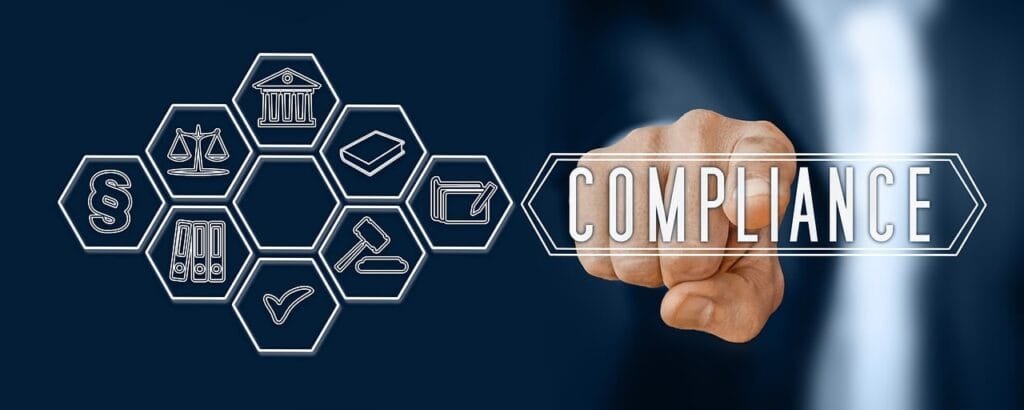Diving into the entrepreneurial world is an exhilarating adventure. It’s about bringing your vision to life, about turning the gears of innovation, and stepping onto a path where your ideas can genuinely make a difference. However, amidst this excitement lies a crucial aspect often overshadowed by the thrill of business development: protecting your personal assets. In this guide, we’ll unravel the mysteries of using company formation services to safeguard what’s yours, ensuring that your entrepreneurial journey is not just successful but also secure. By understanding the ins and outs of company structures and the protection they offer, you can make informed decisions that ensure your personal assets remain untouched, no matter the business weather. Let’s embark on this journey, armed with knowledge and foresight, to build a business that thrives while keeping your personal assets safe and sound.
- Sole Trader vs. Limited Company: The Shield of Limited Liability
- Navigating the Formation Process with Precision
- Fortifying Director’s Liability Protection
- Ongoing Support for Asset Protection
- Tax Efficiency: A Strategic Shield
- Insurance Protections: Building Your Safety Net
- Conclusion
Sole Trader vs. Limited Company: The Shield of Limited Liability
One of the first decisions you’ll face as an entrepreneur in the UK is choosing between operating as a Sole Trader or forming a Limited Company. This choice isn’t just about paperwork; it’s about how much of your personal assets are on the line.
Operating as a Sole Trader is the simplest way to start a business. There’s less red tape, and you have full control over your business operations. However, this simplicity comes with a significant risk: your personal assets are not separated from your business liabilities. In practical terms, if your business hits a rough patch or faces legal issues, your personal savings, property, and other assets could be used to settle business debts. This level of exposure can be daunting and is a critical factor to consider for anyone looking to safeguard their personal assets.
On the flip side, forming a Limited Company offers what’s known as ‘limited liability’ protection. This means the company is its legal entity, separate from its owners (shareholders) and managers (directors). If things go south, your personal assets are generally protected; only the money invested into the company is at risk. This structure provides a safety net, ensuring that your personal financial health is insulated from business challenges. However, it’s worth noting that this protection isn’t absolute. Directors can still be held personally liable in certain situations, such as if they’ve given personal guarantees for loans or if there’s evidence of wrongful trading.
The choice between these two paths is more than just an administrative decision; it’s a strategic move that directly impacts your financial security. While the allure of simplicity might draw you towards being a Sole Trader, the protective barrier offered by a Limited Company is often a crucial factor for those looking to minimize personal risk. This is where company formation services come into play. They can guide you through the process of setting up a Limited Company, ensuring that you’re not just compliant with legal requirements but also strategically positioned to protect your personal assets

Navigating the Formation Process with Precision
Company formation services specialize in the intricacies of setting up a Limited Company, streamlining the process to ensure every legal requirement is met with precision. This includes selecting the right company type, preparing and filing the necessary documents like the Memorandum and Articles of Association, and registering with Companies House. Each step is crucial, as any misstep can lead to delays or vulnerabilities in your legal structure.
Selecting the Right Company Formation Service
The journey begins with selecting a company formation service that aligns with your business vision and offers the expertise necessary to navigate the complexities of legal structuring and asset protection. Look for services with a proven track record, specializing in formations that prioritize asset protection. A reputable service should offer not just registration but also comprehensive support in legal documentation, share structure advice, and personalized consultations to align your business structure with your asset protection goals.
Tailoring Legal Documentation to Your Needs
One of the most critical steps in the formation process is the drafting and filing of your company’s legal documentation. This includes the Articles of Association and Memorandum of Incorporation, documents that define the operational rules of your company, director’s powers, and shareholder rights. Work closely with your formation service to tailor these documents to your specific needs, ensuring they provide a robust legal framework that protects your personal assets while allowing operational flexibility and growth.
Strategic Share Allocation and Structure
The structure of your company’s share allocation is a pivotal element in asset protection. This involves not just the distribution of shares among founders and investors but also the creation of different classes of shares, each with its rights, restrictions, and dividends. Strategic share structuring can influence control over company decisions, distribution of profits, and liability. Your formation service can guide you in designing a share structure that balances control, tax efficiency, and protection of personal assets.
Implementing Director Agreements and Responsibilities
Directors play a crucial role in the management and legal compliance of a Limited Company. Implementing clear director agreements and understanding the responsibilities that come with this role are essential for personal asset protection. These agreements should outline the scope of director duties, decision-making powers, and the mechanisms for dispute resolution. Ensuring that directors are fully aware of their legal obligations can mitigate personal liability risks associated with company debts or legal actions.
Planning for Shareholder Agreements
While not a legal requirement, shareholder agreements are instrumental in preemptively addressing potential disputes and clarifying the rights and obligations of each shareholder. These agreements can cover a range of issues, from dividend policies to the sale of shares and succession planning. A well-crafted shareholder agreement, developed with the assistance of your company formation service, can be a powerful tool in protecting both your business and personal assets from future legal challenges.
RapidFormations is an invaluable resource for entrepreneurs who seek a fast and efficient way to establish their business in the UK. Their streamlined process simplifies the complexities of company registration, especially for overseas clients. With RapidFormations, you can ensure that your business not only complies with UK laws but is also set up for success from day one. Whether you’re expanding into the UK market or starting fresh, their expertise will guide you through every step of the formation process. Try it out now!
1stFormations offers comprehensive company formation packages tailored for non-residents, making it simpler to establish your business presence.
Explore the eSeller and Prestige packages for an all-inclusive solution that covers your company registration and essential services at a discounted rate. With services ranging from registered office addresses to VAT registration, the Non-residents Package is particularly advantageous for those without a UK address. It’s designed to meet all your initial business needs while ensuring compliance with UK regulations.
Fortifying Director’s Liability Protection
While forming a Limited Company inherently limits your liability, there are scenarios where directors can still be personally liable. Company formation services offer guidance on navigating these complexities, providing strategies to minimize personal risk.
Director’s Guarantees and Personal Liability
A key area of focus is the understanding of director’s guarantees and situations that might expose you to personal liability. Formation services can advise on negotiating terms with lenders, suppliers, and landlords to avoid or limit the need for personal guarantees. They also highlight the importance of maintaining a clear separation between personal and company finances, further reducing liability risks.
Compliance and Conduct
Adherence to legal and regulatory obligations is another critical component of protecting directors from personal liability. Company formation services can provide insights into compliance requirements, from financial reporting to tax obligations and corporate governance standards. They also stress the importance of ethical conduct, including avoiding wrongful or fraudulent trading practices, as these can lead to personal liability for directors.
Understanding the Scope of Director’s Liability
Directors of companies, particularly Limited Companies and LLPs in the UK, operate within a legal framework that bestows upon them certain duties and responsibilities. It’s imperative to understand that while the company structure provides some level of protection, directors can still be held personally liable under certain circumstances. These include situations of wrongful trading, fraudulent activities, or failure to adhere to directorial duties as outlined by the Companies Act 2006. A comprehensive grasp of these responsibilities is the first step in fortifying liability protection.
Legal Structuring for Enhanced Protection
The way your company is legally structured can offer layers of protection for directors:
Separate Legal Entities
Ensure the legal distinction between the directors and the company is unequivocal. This separation is fundamental in shielding directors’ personal assets from company liabilities. Formation services can assist in reinforcing this distinction through the correct filing of incorporation documents and the establishment of clear operational boundaries.
Tailored Director’s Agreements
Crafting detailed director’s agreements that clearly outline the scope of responsibilities, decision-making powers, and limitations can serve as a protective measure. These agreements, developed with legal counsel, can provide clarity and set boundaries that safeguard directors from overstepping their roles and incurring personal liability.
Proactive Compliance and Ethical Governance
Adhering to a strict compliance regime and fostering a culture of ethical governance are paramount in protecting directors from personal liability:
Regular Legal Audits
Conducting regular legal and compliance audits can help identify potential areas of risk and ensure that the company remains in good standing with all regulatory requirements. These audits can cover financial practices, employment laws, data protection, and more, offering a proactive approach to compliance.
Ethical Business Practices
Cultivating a company culture that prioritizes ethical business practices not only enhances your company’s reputation but also minimizes the risk of legal issues that could impact directors personally. This includes clear policies on conflicts of interest, bribery, and corruption.
Insurance Solutions for Directors
Directors and Officers (D&O) Insurance is a key tool in the arsenal of liability protection. This insurance can cover legal costs and potential settlements arising from actions taken in the capacity of a director or officer of the company.
Assessing Coverage Needs
Work with insurance professionals to assess the specific risks associated with your company’s operations and industry. This ensures that the D&O insurance coverage is tailored to provide adequate protection.
Regular Policy Reviews
The business environment and associated risks are continually evolving. Regularly reviewing and adjusting your D&O insurance policy ensures that coverage remains relevant and comprehensive, adapting to new challenges as the company grows.
Legal Education and Ongoing Training
Investing in legal education and training for directors can significantly reduce the risk of unintentional non-compliance or breaches of duty. This can include:
Director Training Programs
Participation in training programs that focus on corporate governance, legal obligations, and financial management can equip directors with the knowledge needed to navigate their roles effectively and safely.
Legal Resources and Support
Access to legal advice and support is crucial for directors, particularly when faced with complex decisions or potential legal challenges. Establishing a relationship with a legal advisor who understands your business can provide invaluable guidance and protection.

Ongoing Support for Asset Protection
The journey of protecting your personal assets doesn’t end with the formation of your Limited Company. It’s an ongoing process that requires continuous attention and adaptation as your business grows and evolves.
Regular Legal Check-Ups
Engaging with company formation services for regular legal check-ups can ensure that your company remains compliant and that your asset protection strategies are up to date. This includes reviewing and updating company documents, assessing changes in share ownership, and staying informed about legal and tax changes that might affect your liability.
Asset Protection Strategies
Beyond the initial setup, company formation services can advise on advanced asset protection strategies. This might involve setting up holding companies, exploring insurance options, and strategic financial planning to shield personal wealth from potential business liabilities.
Using company formation services to protect your personal assets involves more than just the mechanics of setting up a Limited Company. It’s about leveraging expert guidance to navigate legal complexities, tailor your business structure, and implement ongoing strategies for asset protection. By doing so, you ensure that your entrepreneurial journey is not just successful but also secure, preserving your personal financial health as you build and grow your business.
Continuous Legal Compliance and Adaptation
The regulatory environment is dynamic, with laws and regulations frequently changing. Continuous compliance is crucial for protecting your personal assets from potential legal entanglements that could arise from inadvertent non-compliance.
Regular Legal Checkups
Incorporate regular legal checkups into your business practice to ensure that your company remains in alignment with current laws and regulations. These checkups can help identify areas where changes in the legal landscape may necessitate adjustments in your operations or company structure.
Adapting to Legal Changes
Be prepared to adapt your business practices in response to legal changes. This may involve modifying contracts, updating employment practices, or revising your company’s data protection policies. Swift adaptation not only keeps your business compliant but also reinforces the protective barriers around your personal assets.
Advanced Asset Protection Strategies
As your business grows, consider implementing more advanced asset protection strategies. These strategies can offer additional layers of security for your personal assets, ensuring they remain shielded from potential business liabilities.
Holding Companies
Utilizing a holding company structure can provide an extra layer of separation between your business operations and your personal assets. By holding assets in a separate legal entity that owns the operating company, you can further insulate your personal assets from business-related risks.
International Asset Protection
For businesses with international operations or significant assets, exploring international asset protection strategies can be beneficial. This might involve establishing entities in jurisdictions with favorable asset protection laws, though it’s crucial to navigate these options carefully, ensuring compliance with all relevant tax laws and international regulations.
Proactive Financial Management
Effective financial management is a cornerstone of ongoing asset protection. Maintaining a clear distinction between personal and business finances is just the beginning.
Separate Financial Structures
Ensure that your business has its own bank accounts, credit lines, and investment accounts, completely separate from your personal finances. This separation is fundamental to asset protection and is also essential for clear financial record-keeping and tax reporting.
Insolvency Planning
Develop a plan for insolvency scenarios to protect your personal assets if your business faces financial distress. This may include setting up emergency funds, diversifying income sources, and understanding the legal processes involved in insolvency.
Leveraging Insurance for Continuous Protection
Insurance plays a key role in ongoing asset protection, offering a financial safety net against various risks and liabilities.
Comprehensive Coverage Review
Regularly review your insurance coverage to ensure it remains adequate as your business grows and new risks emerge. This includes not only general liability and professional indemnity insurance but also specific policies relevant to your industry and operations.
Personal Liability Insurance
Consider personal liability insurance policies that provide coverage beyond the scope of your business activities. This can offer an additional layer of protection for your personal assets against unforeseen liabilities.
RapidFormations is an invaluable resource for entrepreneurs who seek a fast and efficient way to establish their business in the UK. Their streamlined process simplifies the complexities of company registration, especially for overseas clients. With RapidFormations, you can ensure that your business not only complies with UK laws but is also set up for success from day one. Whether you’re expanding into the UK market or starting fresh, their expertise will guide you through every step of the formation process. Try it out now!
1stFormations offers comprehensive company formation packages tailored for non-residents, making it simpler to establish your business presence.
Explore the eSeller and Prestige packages for an all-inclusive solution that covers your company registration and essential services at a discounted rate. With services ranging from registered office addresses to VAT registration, the Non-residents Package is particularly advantageous for those without a UK address. It’s designed to meet all your initial business needs while ensuring compliance with UK regulations.
Tax Efficiency: A Strategic Shield
Tax planning is an essential aspect of asset protection, providing a strategic shield against unnecessary financial exposure. By leveraging the expertise offered through company formation services, entrepreneurs can structure their companies and personal finances in a way that maximizes tax efficiency.
Integrating Tax Planning with Business Structure
The choice of your business structure is intrinsically linked to your tax obligations and opportunities for efficiency. An informed decision at the outset can pave the way for significant tax advantages, aligning with your asset protection goals.
Aligning Structure with Tax Benefits
Consider how different company formations—be it a Sole Trader, Limited Company, or Partnership—impact your tax liability. The transition from Sole Trader to Limited Company, for instance, opens avenues for more diverse tax planning strategies such as salary and dividend payouts which can optimize your tax position while ensuring your personal assets are distinctly separated from business liabilities.
Proactive Tax Structuring
Work closely with tax advisors to structure your business in a way that leverages tax reliefs, allowances, and incentives available to your specific formation type. This includes making the most of Capital Allowances, Research and Development (R&D) tax credits, and Patent Box reliefs for Limited Companies, which not only reduce tax liability but also bolster your financial resilience.
Mastering Tax Obligations and Incentives
A comprehensive understanding of your tax obligations and the strategic use of tax incentives is crucial for maintaining tax efficiency throughout the lifecycle of your business.
Regular Tax Health Checks
Implement a routine of regular tax health checks to ensure ongoing compliance and to identify opportunities for tax efficiency. These checks can help you stay ahead of legislative changes, ensuring your business adapts to new tax laws and continues to operate in the most tax-efficient manner possible.
Leveraging Tax Incentives
Stay informed about tax incentives that can reduce your taxable income and, by extension, protect your personal assets from being compromised by business tax liabilities. This includes industry-specific incentives and tax relief schemes that encourage investment in innovation, which can significantly reduce your company’s tax burden.
Personal Tax Planning as a Layer of Defense
Personal tax planning is an extension of your business tax strategy, providing an additional layer of defense for your assets. Aligning your personal and business tax planning can create a cohesive shield that maximizes asset protection.
Diversification of Income Sources
Explore avenues for income diversification that can spread tax liabilities and take advantage of lower tax rates or specific tax reliefs. This may include investments that offer tax-efficient returns, leveraging tax-free allowances on savings and investments, or income splitting strategies, where permissible, to utilize tax allowances across family members.
Retirement Planning
Incorporate retirement planning into your overall tax strategy. Contributions to pension schemes offer tax relief, reducing your immediate tax liability while simultaneously building a nest egg that is protected from business creditors.

Insurance Protections: Building Your Safety Net
Insurance is a critical component of any comprehensive asset protection strategy. Beyond the mandatory insurances required for businesses, there are several additional policies that can safeguard your personal assets from the repercussions of business liabilities.
Crafting a Customized Insurance Strategy
A one-size-fits-all approach doesn’t apply when it comes to insurance for startups. Each business, with its unique risks and operational nuances, requires a tailored insurance strategy that aligns with its specific needs and growth trajectory.
Assessing Unique Business Risks
Start by conducting a thorough risk assessment of your startup. This involves identifying potential risks associated with your industry, operations, and even geographical location. Whether it’s the risk of data breaches for tech companies or property damage for retail outlets, understanding these risks is the first step in crafting a customized insurance strategy.
Consultation with Insurance Professionals
Engaging with insurance professionals who specialize in your industry can provide invaluable insights into the types of coverage that best suit your business. These experts can guide you through the myriad of insurance options, helping you understand policy details, coverage limits, and exclusions, ensuring you’re not over-insured or underinsured.
Integrating Insurance into Your Business Operations
Insurance should be viewed as an integral component of your business operations, offering protection that enables sustainable growth rather than as a mere regulatory compliance or overhead expense.
Proactive Risk Management
Incorporate insurance into your broader risk management strategy. Use insurance coverage not just as a safety net for when things go wrong but as a proactive tool that informs your operational decisions, from contract negotiations to product development.
Regular Policy Reviews and Adjustments
As your startup grows and evolves, so too should your insurance coverage. Implement regular reviews of your insurance policies to ensure they remain aligned with your current business operations, assets, and risk exposure. Adjustments may be necessary to accommodate new products or services, expansion into new markets, or changes in regulatory requirements.
Key Insurance Protections for Startups
Identifying the right mix of insurance policies is crucial for building a comprehensive safety net around your personal and business assets.
General Liability Insurance
This foundational coverage protects against claims of bodily injury, property damage, and more, offering broad protection for a variety of potential incidents that could impact your business.
Professional Indemnity Insurance
For businesses that provide advice or services, professional indemnity insurance can protect against claims of negligence, misrepresentation, or breach of duty. It’s an essential coverage for safeguarding against the financial repercussions of legal action.
Directors and Officers Insurance
D&O insurance offers protection for your personal assets by covering legal expenses, settlements, and other costs associated with claims against the company’s directors and officers. This policy is crucial for mitigating personal financial risk stemming from managerial decisions.
Cyber Liability Insurance
In an increasingly digital world, protecting against cyber threats is paramount. Cyber liability insurance can cover the costs associated with data breaches, including legal fees, notification costs, and credit monitoring services for affected customers.
Insurance protections serve as a critical component of a comprehensive asset protection strategy for startups. By crafting a customized insurance strategy, integrating insurance into your business operations, and selecting the right mix of policies, you can ensure that both your personal and business assets are safeguarded against a wide array of risks. This strategic approach to insurance not only protects your assets but also supports the resilience and long-term sustainability of your startup.
RapidFormations is an invaluable resource for entrepreneurs who seek a fast and efficient way to establish their business in the UK. Their streamlined process simplifies the complexities of company registration, especially for overseas clients. With RapidFormations, you can ensure that your business not only complies with UK laws but is also set up for success from day one. Whether you’re expanding into the UK market or starting fresh, their expertise will guide you through every step of the formation process. Try it out now!
1stFormations offers comprehensive company formation packages tailored for non-residents, making it simpler to establish your business presence.
Explore the eSeller and Prestige packages for an all-inclusive solution that covers your company registration and essential services at a discounted rate. With services ranging from registered office addresses to VAT registration, the Non-residents Package is particularly advantageous for those without a UK address. It’s designed to meet all your initial business needs while ensuring compliance with UK regulations.
Conclusion
Navigating the entrepreneurial landscape with your personal assets securely protected requires a blend of strategic foresight, legal acumen, and proactive planning. Utilizing company formation services is more than a foundational step in launching your business; it’s a crucial move in safeguarding your financial well-being. Through the strategic selection of your business structure, be it a robust Limited Company or a flexible LLP, you initiate a protective barrier around your personal assets right from the outset. This decision, coupled with tailored legal documentation, strategic tax planning, comprehensive insurance coverage, and the sophisticated use of trusts and estate planning, forms a cohesive defense strategy against potential business liabilities.
However, asset protection is not a ‘set and forget’ strategy. It demands ongoing vigilance, adaptation to changing laws and business environments, and a commitment to maintaining clear boundaries between personal and business finances. Regular legal check-ups, continuous risk management, and the strategic evolution of your asset protection measures ensure that as your business grows, your personal wealth remains shielded and secure.
Read Next
- The Benefits of Setting Up a Limited Company for Freelancers and Contractors
- Exploring the Different Types of Company Formations in the UK
- The Entrepreneur’s Roadmap: From Idea to Company Formation
- Company Formation: DIY vs. Hiring a Professional Service
- Tax Advantages of Company Formation in the UK






















Comments are closed.